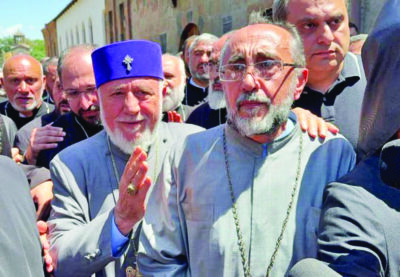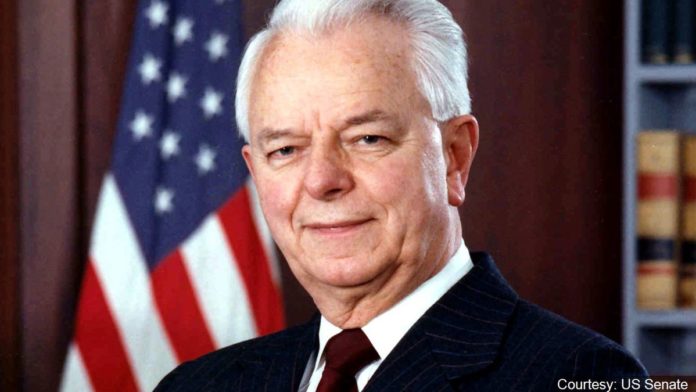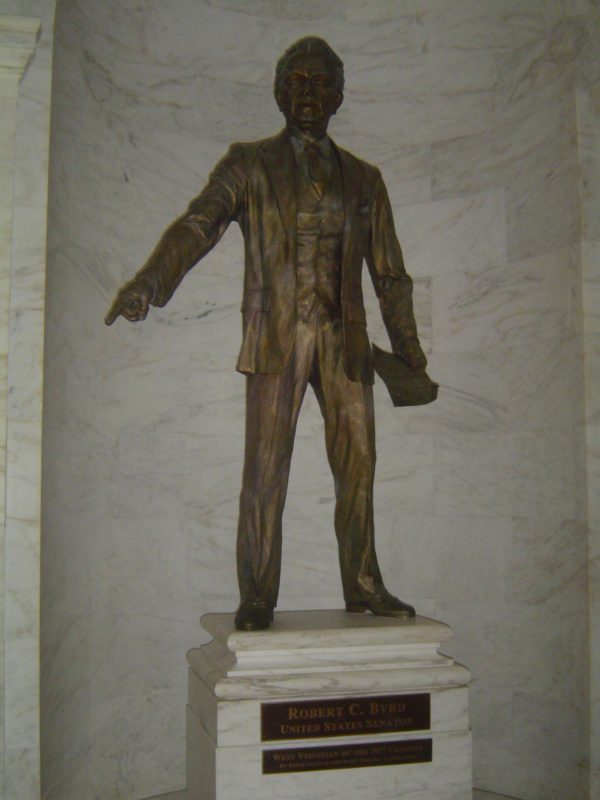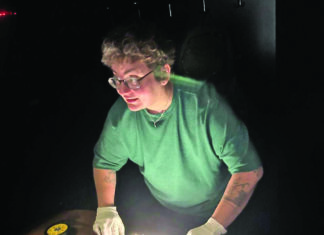WATERTOWN — Americans are living through a time of reevaluation concerning the treatment of black Americans and Native Americans, race relations, colonialism and many aspects of history in general. On the popular level, mass movements sometimes have led to the direct action of toppling statues of Confederate leaders or Christopher Columbus, while in other cases official deliberations concluded with local governmental bodies deciding to remove various statues. The legacy of the late Robert Carlyle Byrd (1917-2010), the longest serving senator in US history, has come under renewed focus along with that of many others, and here, Armenians have something to add.
Most infamously, Byrd began his political career in West Virginia as a leader of the Klu Klux Klan, recruiting 150 members to a chapter that he headed. In a 1945 letter to a racist Mississippi senator, he wrote: “Rather I should die a thousand times, and see old Glory trampled in the dirt never to rise again, than to see this beloved land of ours become degraded by race mongrels.” He filibustered against the Civil Rights Act of 1964 and opposed the Civil Rights movement of the time, calling Martin Luther King a “self-seeking rabble rouser.”
Later in his life, Byrd apologized numerous times for his racist actions and ostensibly changed his political views, though some questioned his sincerity and suspected political opportunism. He also changed his positions on international affairs. A supporter of the Vietnam War, Byrd later opposed the contra war in Nicaragua in 1987 and the invasion of Iraq in 2003.
One thing though did not change. Throughout his career, Byrd was renowned for bringing federal money to his home state of West Virginia, to the extent that he was called the “king of pork.” He brought around $4 billion in federal money over some twenty years to his home state, according to Citizens Against Government Waste.
Perhaps similar pragmatic motivations, along with the usual range of Cold War era international politics, that explain his closeness to Turkey. As the president of the Turkish Coalition of America, G. Lincoln McCurdy, said in 2010, “With the passing of Senator Byrd, one of the most dedicated public servants this country has ever seen, Turkish Americans have lost a friend and a champion.”
His first Congressional trip overseas included a visit to Turkey in 1955 and Byrd made further visits over the years. In 1978, Byrd pushed through the Senate the repeal of the 3 ½ year old embargo on US military assistance to Turkey. He worked to provide aid for Turkey in 1988 as a US ally with its “vital strategic position for the NATO alliance” and in a late 1990 visit to Turkey declared, “The United States does not have a more loyal, trustworthy and better friend and ally than Turkey.” He even wrote a poem “To the Turkish People” which he read in a goodbye speech at the airport during that visit (Turkey Today, October/November 1990).









